Early Years Foundation Stage
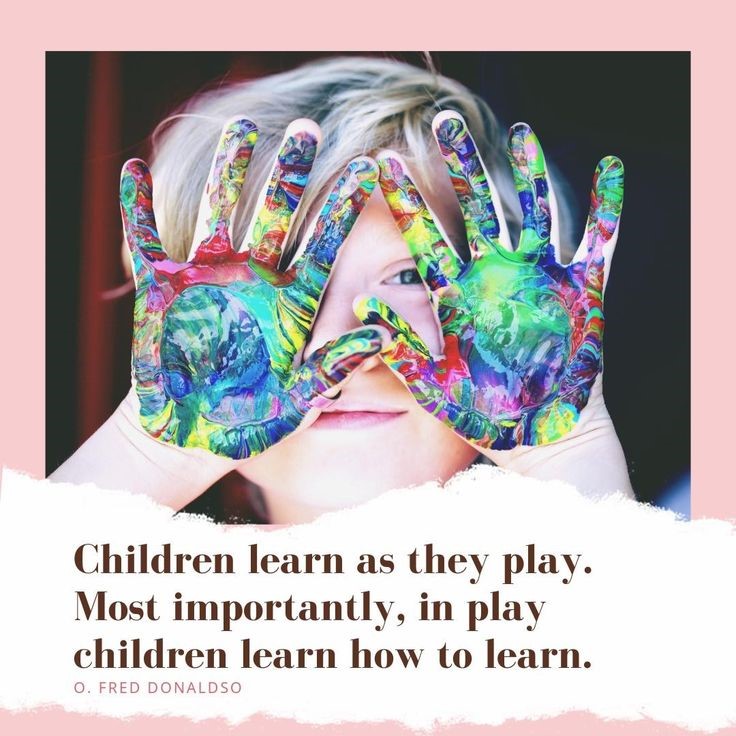
"In the playground you see kindness."
At Market Harborough Church of England Academy, we strive to provide an educational journey that inspires and provides the steppingstones for children to grow and achieve. Our Early Years curriculum is designed to provide a broad and balanced start to education that meet the needs of all children.
Our ethos is to nurture our pupils’ personal, social and emotional development providing the essential roots of safety, security and readiness to learn. We recognise that strong relationships are fundamental to supporting children’s cognitive development and we nurture our relationships with parents, carers and practitioners to ensure that our children are happy and secure learners. We celebrate diversity and pupils’ spiritual, moral, social and cultural development. Our curriculum is set with no limits and no barriers to enable all children to achieve.
The principles which guide the work of all early years practitioners are grouped into four themes. These four guiding themes work together to underpin effective practice in the delivery of the EYFS.
A unique child: every child is a competent learner from birth who can be resilient, capable, confident and self-assured.
Positive Relationships: Children learn to be strong and indepednet from a base of loving and secure relationships.
Learning and Developing: Children develop and learn in different ways and at different rates and all areas of learning are equally importntnt and interconnected.
Enabling Environments: The environment plays a key part in supporting and extending children’s development and learning.
THE AREAS OF LEARNING AND DEVELOPMENT
The Early Years curriculum is taught through seven areas of learning and development.
All areas of learning and development are important and inter-connected.
Three areas are particularly crucial for igniting children’s curiosity and enthusiasm for learning, and for building their capacity to learn, form relationships and thrive, these are called the prime areas:
PRIME AREAS:
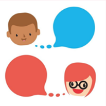 Communication and Language
Communication and Language
This involves giving children opportunities to experience a rich language environment; to develop their confidence and skills in expressing themselves; and to speak and listen in a range of situations.
We want our children to speak confidently and clearly in front of others, whilst exploring and enjoying stories though our Story-Telling approach. We will enable them to respond to what they hear with relevant comments, questions or actions, and they will learn to answer ‘how’ or ‘why’ questions in response to stories or events.
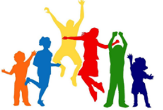 Physical Development
Physical Development
Physical development focuses on improving control and coordination of their bodies while learning to move and to handle equipment.
We teach our children to move confidently, explore space and avoid obstacles as they build their gross and fine motor skills. Our children learn how to sleep, food and exercise are key to help us stay healthy; they learn how to dress themselves independently and manage their personal care.
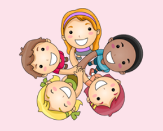 Personal, Social and Emotional Development
Personal, Social and Emotional Development
Personal, social and emotional development involves helping children to develop a positive sense of themselves, and others; to form positive relationships and develop respect for others; to develop social skills and learn how to manage their feelings; to understand appropriate behaviour in groups; and to have confidence in their own abilities.
We want our children to understand their feelings and emotions and express their own needs. We help them to build the skills necessary to work and play well with others, such as; sharing and taking turns and teach them about ways to keep themselves safe.
4 SPECIFIC AREAS - There are four specific areas, through which the three prime areas are strengthened and applied:
 Literacy
Literacy
Literacy development involves encouraging children to link sounds and letters and to begin to read and write. Children need to be given access to a wide range of reading materials (books, poems, and other written materials) to ignite their interest.
We use the Read Write Inc scheme to teach phonics. Our children systematically learn the sounds of the alphabet and how to write them. They are taught to blend the sounds together to read and segment words in order to write them. By the end of the year, our children know how to read and write simple sentences. Our Story Telling approach allows children to become emersed in stories, exploring language and key features.
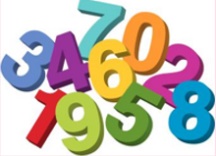 Mathematics
Mathematics
Mathematics involves providing children with opportunities to develop and improve their skills in counting, understanding and using numbers, calculating simple addition and subtraction problems and describing shapes, spaces and measures.
Our children develop an understanding of maths through stories, songs, games and imaginative play. They use a range of practical resources to build their knowledge and understanding of numbers up to 20, through comparison, cardinality (the value of a number) and composition (how numbers are made up of smaller numbers). We want them to explore measures including capacity, weight, length, money and time and they will learn about 2D and 3D shapes and how to use simple mathematical terms to describe them.
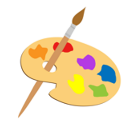 Expressive Arts and Design
Expressive Arts and Design
Expressive arts and design involves enabling children to explore and play with a wide range of media and materials, as well as providing opportunities and encouragement for sharing their thoughts, ideas and feelings through a variety of activities in art, music, movement, dance, role-play, and design and technology.
Our children will develop the following skills:
- Artistic - use a variety of materials to explore colour and shape
- Creativity - they will learn how to move rhythmically and make their own music
- Imagination - they will discover how to make models and tell their own versions of stories
 Understanding The World
Understanding The World
Understanding the World involves guiding children to make sense of their physical world and their community through opportunities to explore, observe and find out about people, places, technology and the environment.
We teach our children to use their senses to explore, ask and answer questions to find out more about the world around them.
They will have opportunities to:
- construct with a variety of materials;
- find out about everyday technology and its uses;
- complete a simple program using an iPad;
- discuss events from their own experiences;
- discover facts about past events, and
- learn to embrace and respect different cultures and beliefs.
